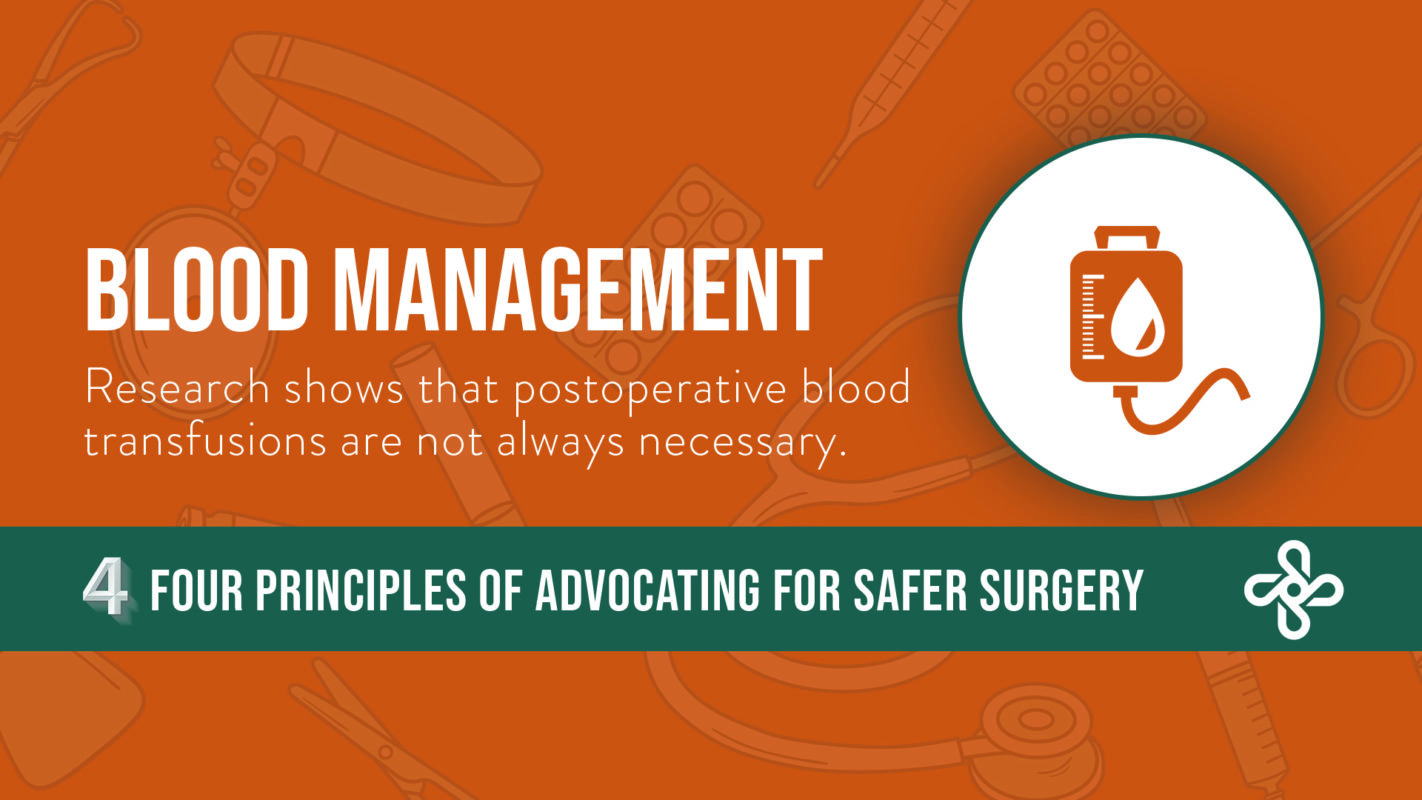
Some providers have learned that balancing both clinical and economic concerns must begin on the most basic level—with a check of the patient’s blood health—and implementation of effective patient blood management (PBM) strategies. Blood transfusion has been associated with higher rates of mortality and morbidity as well as increases in length of stay, readmissions, hospital-acquired infections, and other complications. Let’s take a look at the third principle in our blog series.
#3 – BLOOD TRANSFUSION REDUCTION
Blood transfusions are still a very common procedure, with 21 million blood components being transfused every year.
DOWNLOAD FREE INFOGRAPHIC
In a 2015 study of 33,000 patients receiving a transfusion 72 hours after surgery:
- 11% died
- 55% developed serious morbidity.
Compared to high-risk patients, low-risk patients receiving blood transfusions face
- 8-10x the possibility of adverse outcomes.
Reducing blood transfusions could save
- $20-35 million dollars in medical costs per year
It makes sense that a strong patient blood management program can have a tremendous impact on patient outcomes and value-based healthcare delivery. By reducing transfusion rates, providers are reducing the likelihood of complications, ranging from acute immune hemolytic reaction to blood-borne infections and lung injury. This translates to fewer and shorter hospital stays and reduced readmissions, performance indicators that impact reimbursements. And since the activity-based costs of one unit of red blood cells can exceed $1,000, reducing transfusions can factor heavily in cost containment goals.
Download Four Principles of Advocating for Safer Surgery, an infographic featuring simple (yet critical) ways to improve patient safety during day-to-day operations.
About SpecialtyCare
SpecialtyCare is the industry leader in perfusion and intraoperative neuromonitoring, providing staff and resources to 1,100 hospitals and health systems nationwide. We offer services such as perfusion, ECMO, autotransfusion, sterile processing consulting, surgical assist, and complex instrument support. Our job is to make surgery safer, share innovation and research using our extensive knowledge base, and help your health system maintain standards of excellence and improve patient outcomes year after year. To learn more about our services, contact us today.



Comments are closed.